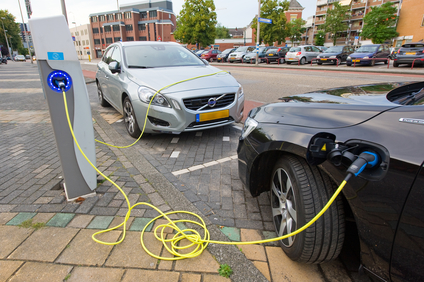Partner content
What you need to know about buying an electric car in NL

The Netherlands has been at the forefront of promoting electric vehicle use and the government has set a target of making sure all new cars which take to the roads are emission-free by 2030.
And according to the CBS Dutch statistics office, the number of electric vehicles in the Netherlands has tripled in the last four years, from almost 43,000 in 2019 to nearly 128,000 last year.
Part of this is down to a range of government measures to stimulate electric vehicle usage which has had a considerable impact on the size of the electric fleet.
National government and local authorities are also establishing a dense network of charging points – hitting 143,000 locations by the end of last year.
Worried about finding a place to charge up your car if the battery is running low? Anyone can use an app like the GRID EV app to find the charging station that is closest to their location.
Subsidies for private electric cars
The Dutch government introduced a new subsidy scheme for electric vehicles in 2020, which had a dramatic effect on the market.
Buyers were able to claim €4,000 towards the cost of a new car and €2,000 towards a second-hand vehicle, but the scheme was extremely popular and subsidy pot ran out quickly every year. In fact, in 2020, it was gone in just eight days.
From 2024, the situation has changed. The subsidy for a new electric car has been cut to €2,950 but the benefit for second-hand cars remains the same.
To qualify, you need to meet two key conditions.
- The range of the vehicle should be a minimum of 120 kilometres
- The original price of the electric vehicle should be below €45,000
In 2024, the government has set aside €58 million for new cars and €29.4 million for second-hand vehicles. Now, in mid-February, some over €10 million of the total has already been handed out.
Be aware: the subsidy also only applies to cars that cost less than €45,000 when new, which means many second-hand cars don’t fall under the scheme.
Click here for the list of cars that qualify.
Self-employed?
If you are self-employed or looking to buy a commercial vehicle for your company, then you can make use of a subsidy of €5,000 per company car under a scheme known as SEBA.
The funding comes from the infrastructure ministry budget which has not yet been approved by the senate, so applications are not yet open. In addition, 2024 is the last year in which it will operate. Click here for updates.
Business owner
There are also several subsidy pots available for companies of all sizes that want to have an electric fleet, including delivery vans. The Dutch government website has a full list, in English.
By the way, if you are renovating your business premises or building a new one, you must install at least one charging station for every 10 parking spaces. If your business premises have more than 20 parking spaces you will need to have installed at least one charging station by 2025.
Road taxes
The one downer for EV drivers is the government’s decision to introduce road tax for electric vehicles from 2025. Road tax is based on weight and electric cars’ heavy batteries mean road tax will mount up to €80 per month. But at least in 2024, you won’t have to pay.
Thank you for donating to DutchNews.nl.
We could not provide the Dutch News service, and keep it free of charge, without the generous support of our readers. Your donations allow us to report on issues you tell us matter, and provide you with a summary of the most important Dutch news each day.
Make a donation